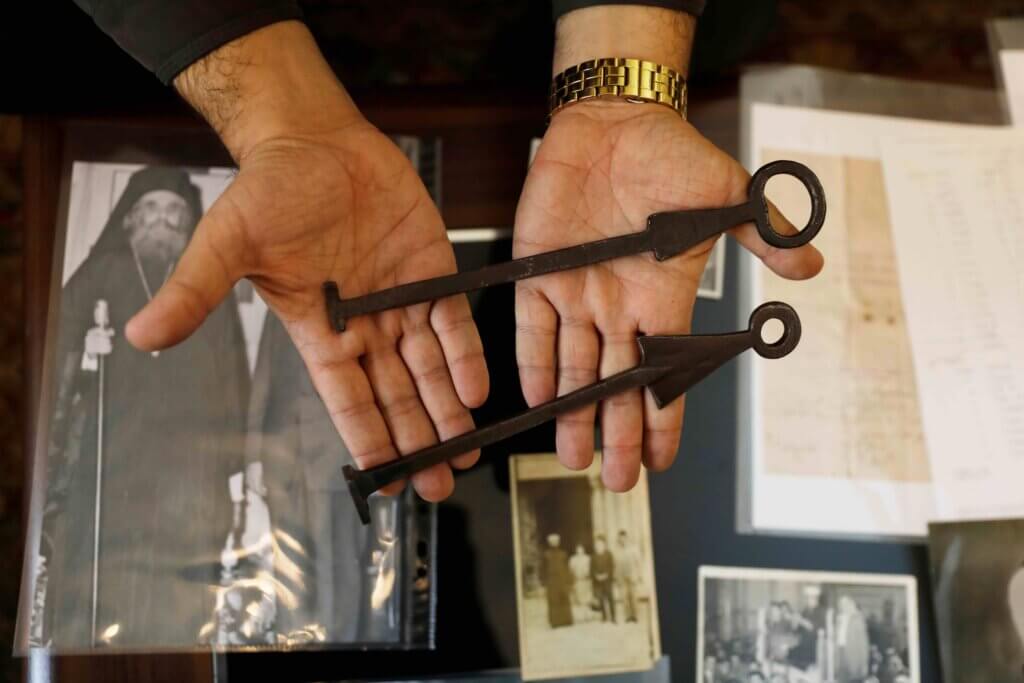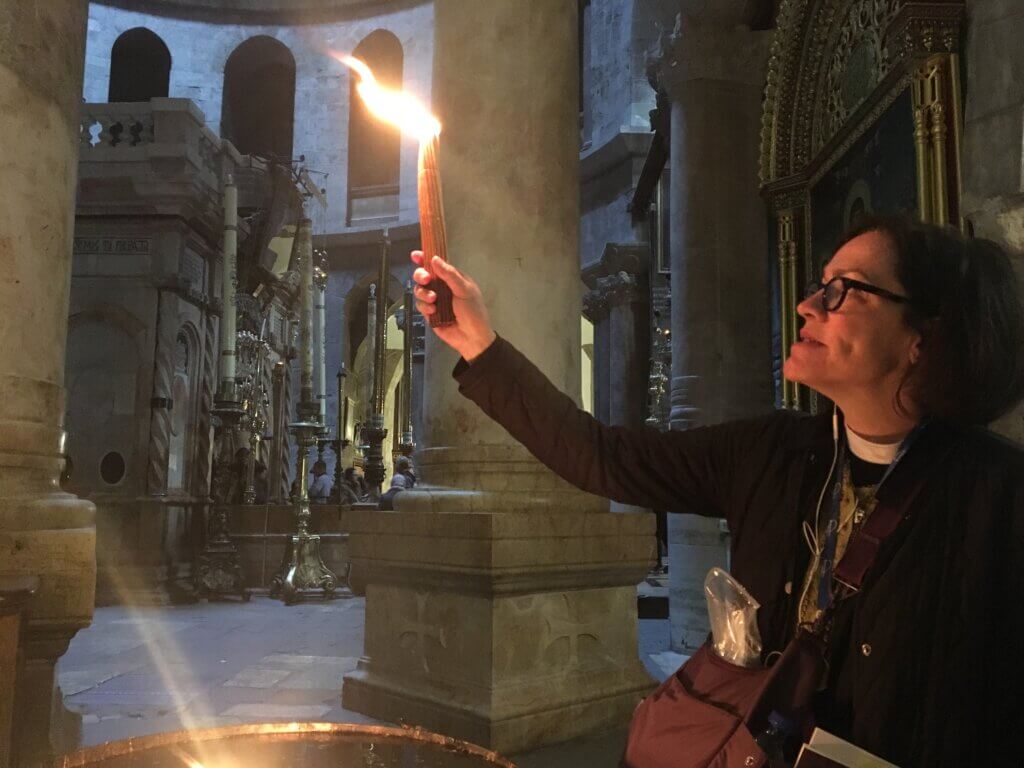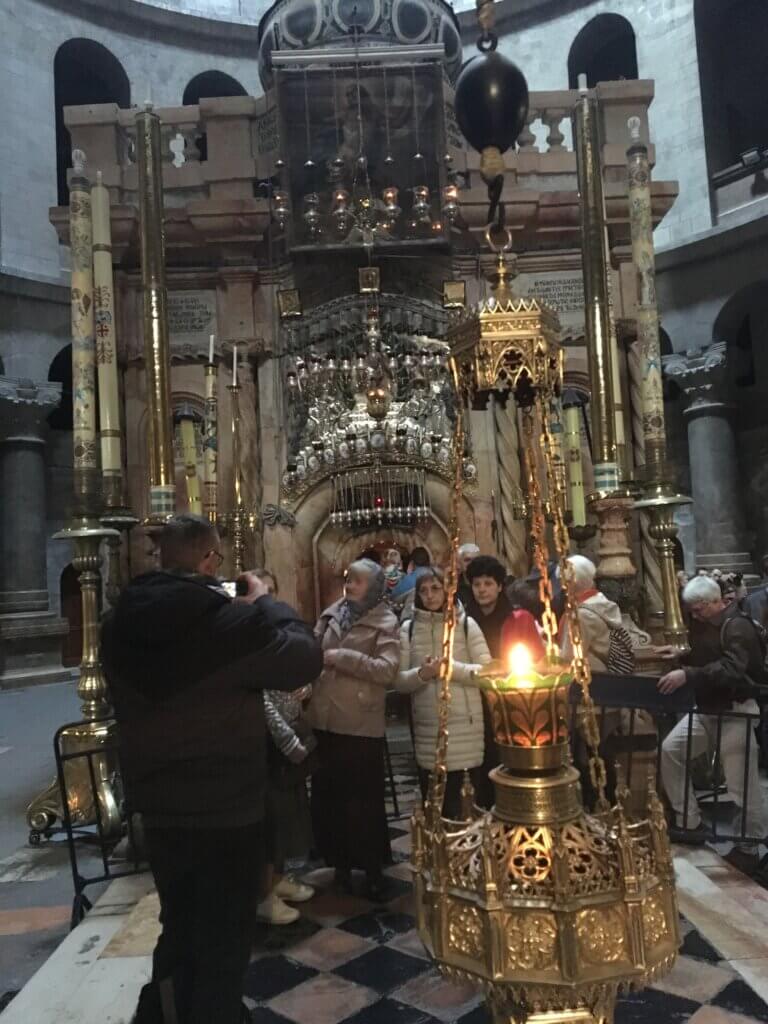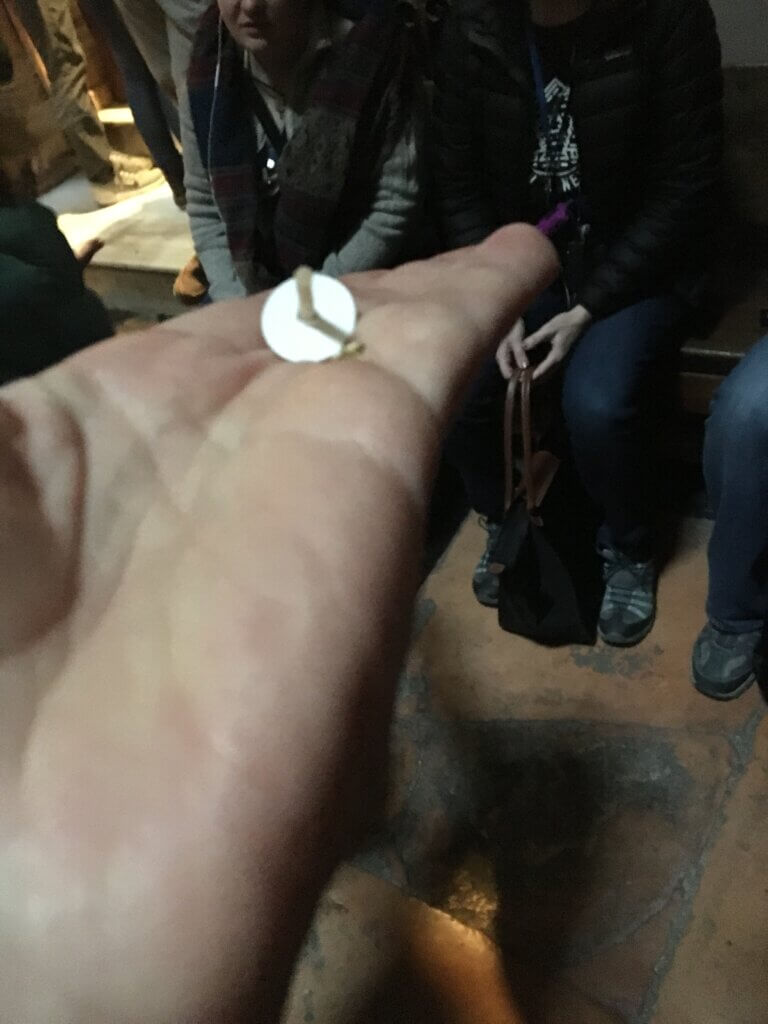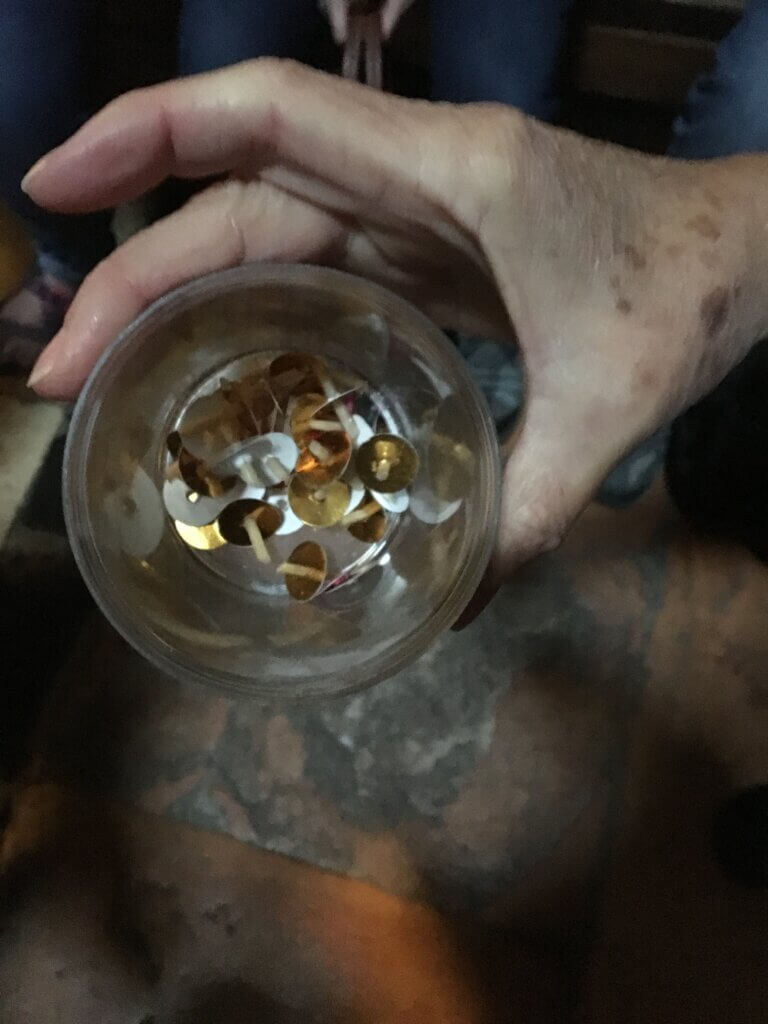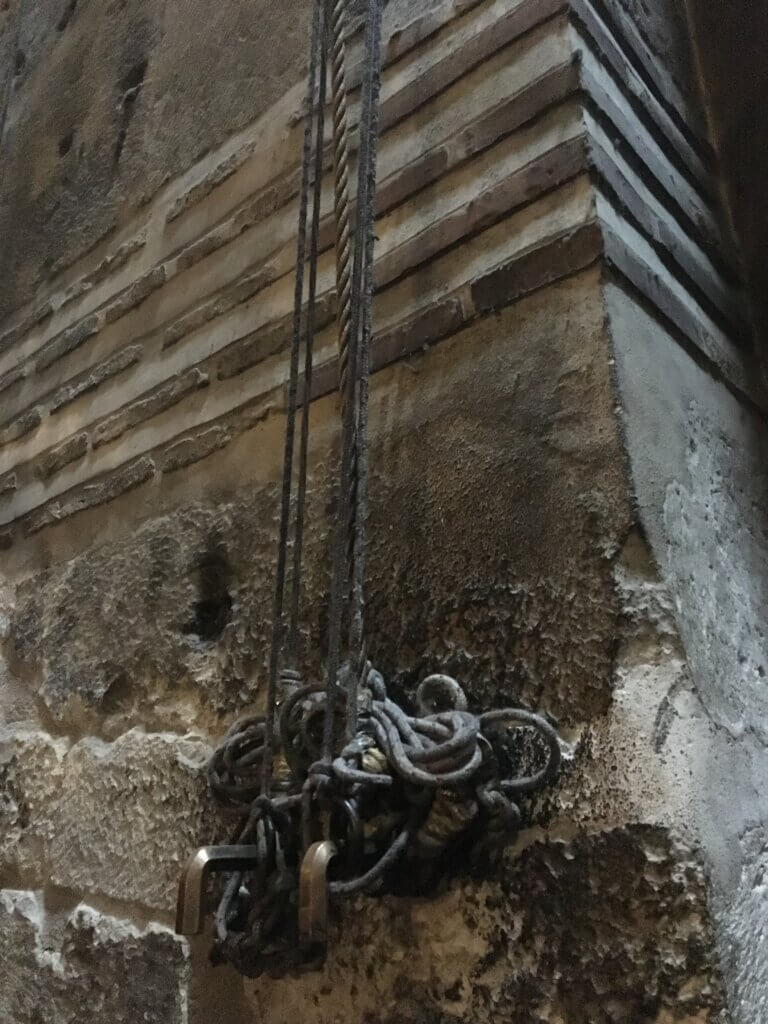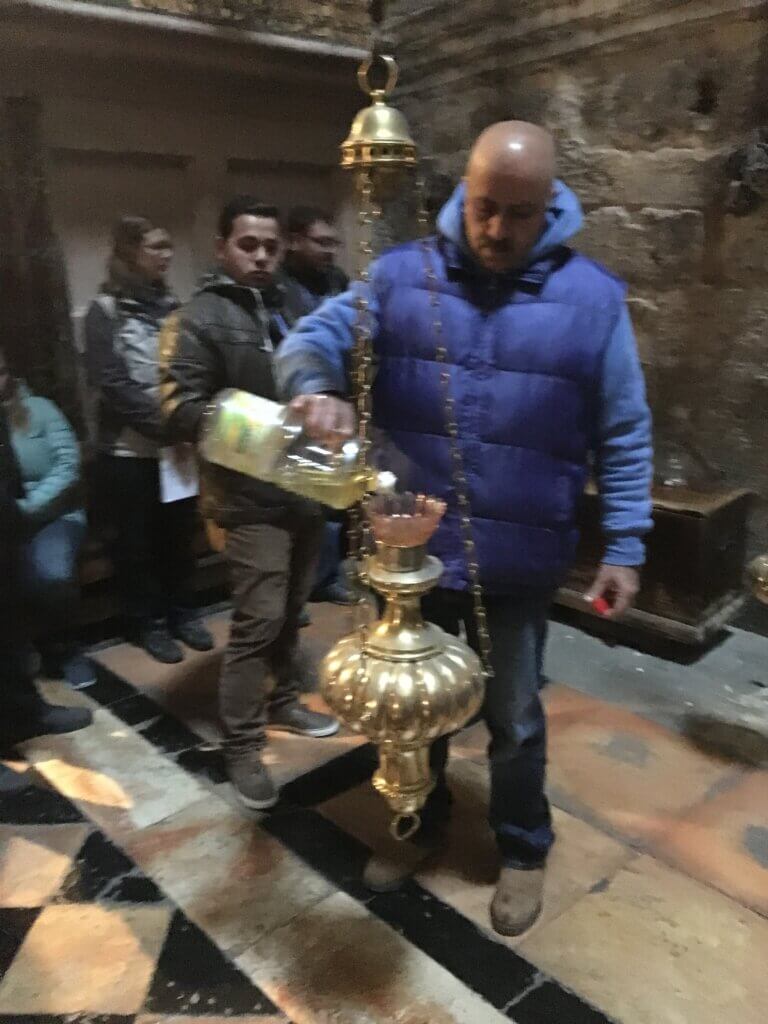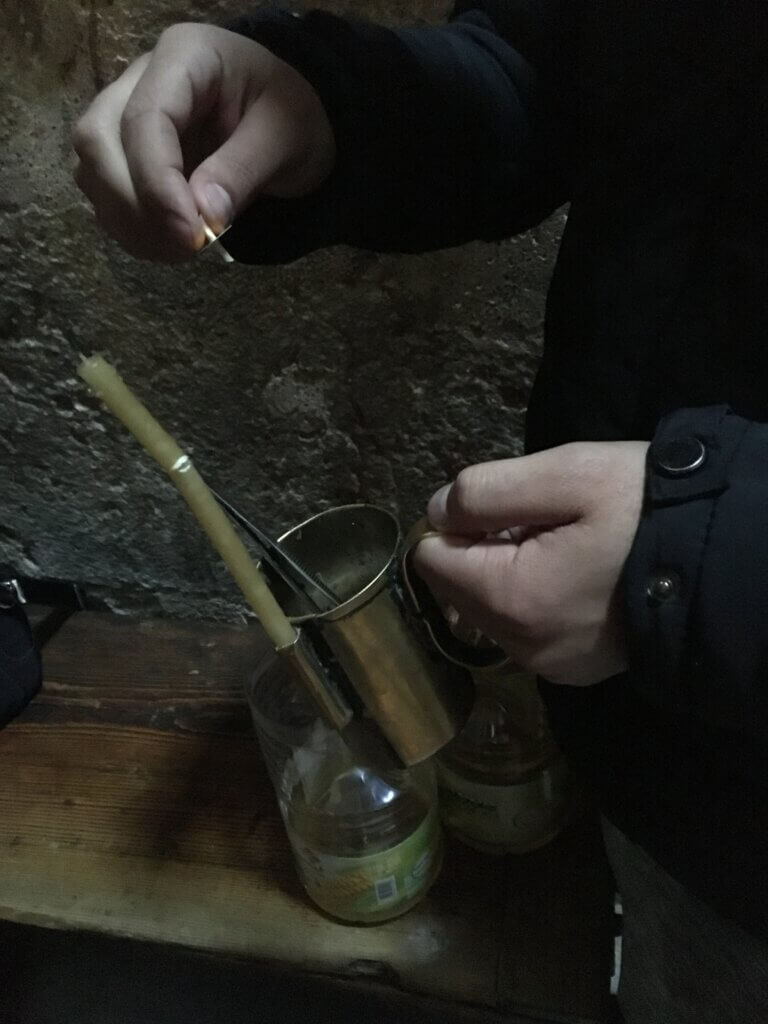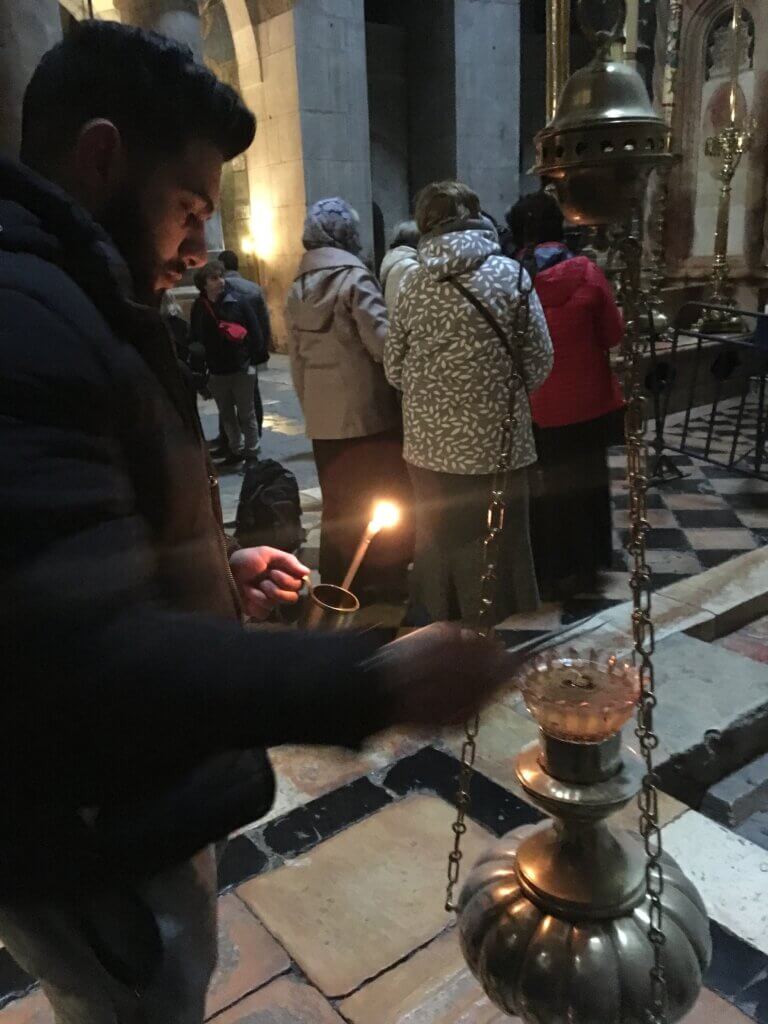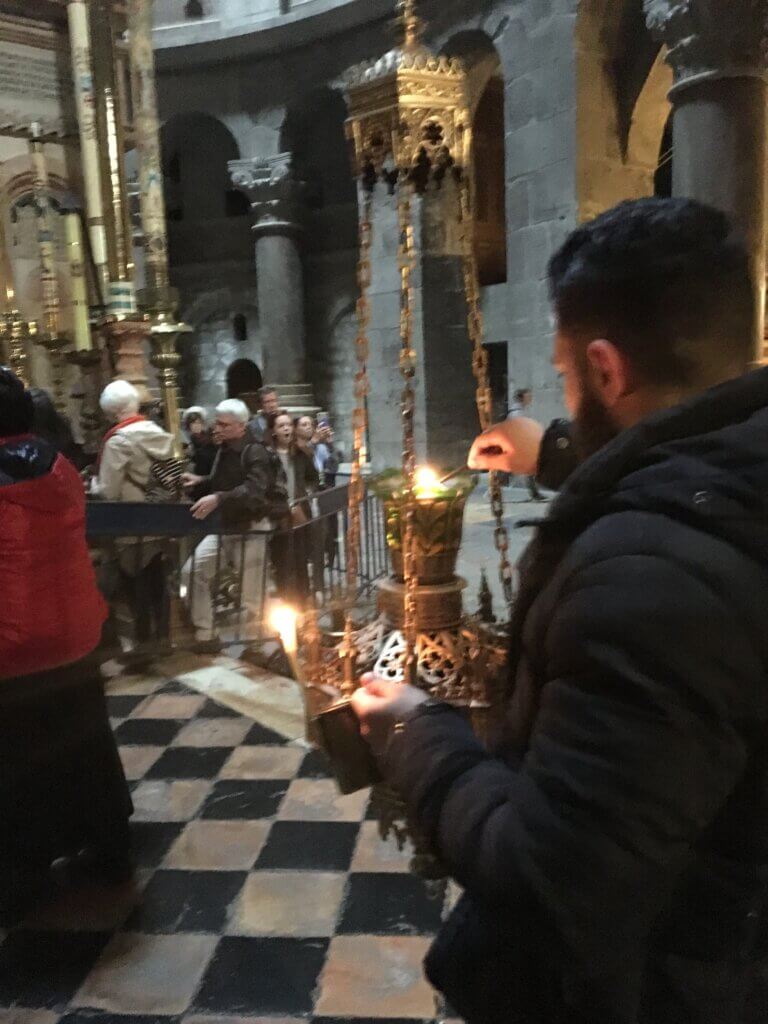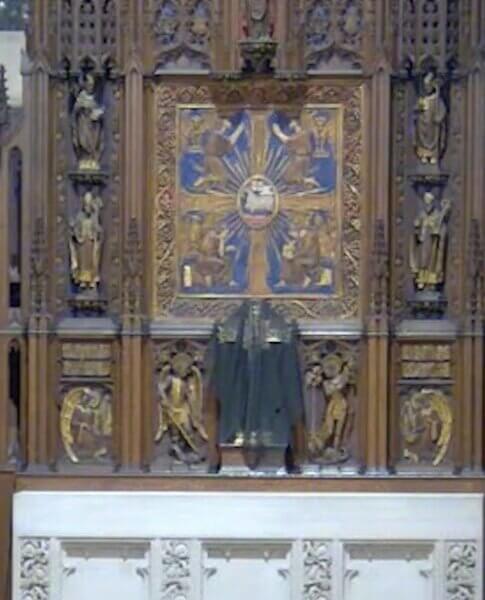
The Holy in the Wholly Ordinary
Different faith communities have different ways of observing Maundy Thursday — the Thursday of Holy Week. And the Book of Common Prayer’s special liturgy for Maundy Thursday gives us two choices in the gospel, either John’s account of Jesus’ washing the disciples’ feet, or Luke’s more detailed narrative of the Last Supper. Luke’s story of the Last Supper gives us our familiar words of institution:
He he took the bread, and when he had given thanks he broke it and gave it to them, saying “Take, eat, this is my body.” And he took a cup, and when he had given thanks he gave it to them, saying “Drink of it, all of you, for this is my blood of the covenant, which is poured out for many for the forgiveness of sins.”
It is the Passover meal that is the basis of our eucharist, or communion. And it is the “do this in remembrance of me” language from the Last Supper that gives us the name of this day — Maundy Thursday — in the church year. Maundy is a shortened form of the Latin word mandatum, which means command. Think of the related English words mandate or mandatory. We also observe in this service the tradition of stripping of the altar, simplifying our worship space to spare holiness as we wait in vigil for Easter morning.
The Church of the Holy Sepulchre
When I was living in Jerusalem the year before I came to Emmanuel, I traveled all around the holy lands where Jesus’ earthly ministry took place. In all these places, I often noticed the holiness in completely ordinary things. Sometimes the very plainest, simplest actions, undertaken with the most common, everyday tools, were eloquent acts of devotion and holiness. I was often amazed by the pure practicality of holy spaces, like Holy Sepulchre, the 4th century church in Jerusalem’s Old City. Holy Sepulchre is built over the Church’s memories of Golgotha, where Jesus was crucified, and Joseph of Aramathea’s first century rock-cut tomb, where the Church remembers that Jesus was laid before his resurrection. A Muslim family holds the key to Holy Sepulchre for the many Christian orthodox denominations that share the space.
Every morning, the key holder opens the giant doors with a heavy iron key half the length of my forearm. Right inside the front door are the stone steps up to Golgotha, where Jesus was crucified with the two bandits. Millions of pilgrims climb these steps every year, and after hundreds of years, they are hollowed in the center and very uneven. These steps could be replaced or repaired, but they never are. The wear of the pilgrims’ ordinary, dirty feet are themselves blessings, the prayers of the ages worn into the rock. Every morning, women threw down hot, soapy water from an ordinary bucket onto those holy stone steps, and also on the altar in front of the rock where the pilgrims kneel to touch the rock believed to have held Jesus’ cross. Then they scrubbed those holy steps with a common brush, probably bought from one of the shopkeepers just outside Holy Sepulchre’s massive, ancient wooden doors.
Over in front of the Armenian chapel at Jesus’ empty tomb, a burly altar guild was frequently working. Three strong men in t-shirts and jeans performed the holiest rites of filling and lighting the oil lamps that burn continuously outside Jesus’ empty tomb. They loosen the ropes holding the lamps from cleats on the wall that hold them secure. They remove the used and burned wicks with a tiny ladle, and float fresh wicks on the newly poured oil, then hoist the lamps back up into place. The oil is ordinary Mazola oil — it burns cleaner than olive oil, and they buy it in ordinary 5-gallon bottles, just like any restaurant would, for French fries, or in Rhode Island, fried clams. It was a revelation to me to see the loving care that the holy spaces received. It was ordinary, homey, holy care — nothing fancy — and nothing that could only be done with special materials, or only by priests. Hot water, soap, Mazola oil. Bread, wine, water.
The Mandate
Sometimes we can get a little distant from the gospel if we don’t remember the simple, homey things, like the Great Commandments: Love God with all your heart, mind, and strength, and love your neighbor as yourself. And the mandate, celebrated as the Last Supper on Maundy Thursday before Good Friday, when Jesus said to the disciples, “Do this in remembrance of me.” The this Jesus speaks of is ordinary, holy care — nothing fancy, and none of it requiring special materials. Only a little can only be done by priests, and the rest of the holy effort belongs to all of us. Keep blessing, breaking, and sharing the bread. Keep drinking of the cup of wine. Keep caring for your community. Be fair and kind to one another, and be fair and kind to yourself.
Throughout Lent, we’ve celebrated communion at the moveable altar down on the floor at the crossing, remembering the simplicity and focus of Jesus’ time in the wilderness preparing for his earthly ministry that would follow. At the same time, we have anticipated this night, remembering the Last Supper, remembering the portable altar as our family table, using the simple pottery paten and chalices that Nick Brown brought back from Iona. And we’ve used bread baked by our Emmanuel community — Deb Venancio, Fay Gosling, and Nancy Zitka — to connect us to this last supper, and to the nourishing spiritual food that our holy, homey sacraments give us.
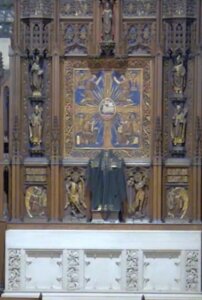 At the end of tonight’s service, Bobby and Sandy will strip the altar, taking down all of our beautiful red hangings we have up for Holy Week. Any of you who would like to join in this powerful moment are welcome to join us on the chancel to help carry things into the sacristy. And we’ll place the consecrated bread on the altar in the chapel, where we’ve created a garden space for your prayer and meditation over the next 24 hours, as we remember that after the Last Supper, Jesus walked down from the Upper Room in Jerusalem across the Kidron Valley to the Garden of Gethsemane, where he prayed all night. Gethsemane is about a 25 minute walk from the Upper Room in real time today, and Gethsemane, apart from the pilgrims and the ancient olive trees, is a regular garden, with rich, dark earth, and daffodils and tulips this time of year. It’s still too early for hollyhocks.
At the end of tonight’s service, Bobby and Sandy will strip the altar, taking down all of our beautiful red hangings we have up for Holy Week. Any of you who would like to join in this powerful moment are welcome to join us on the chancel to help carry things into the sacristy. And we’ll place the consecrated bread on the altar in the chapel, where we’ve created a garden space for your prayer and meditation over the next 24 hours, as we remember that after the Last Supper, Jesus walked down from the Upper Room in Jerusalem across the Kidron Valley to the Garden of Gethsemane, where he prayed all night. Gethsemane is about a 25 minute walk from the Upper Room in real time today, and Gethsemane, apart from the pilgrims and the ancient olive trees, is a regular garden, with rich, dark earth, and daffodils and tulips this time of year. It’s still too early for hollyhocks.
Simple pottery cups and plates. Gathering around our community table. Hot water, soap, Mazola oil. Blessing and sharing bread and wine. It’s the holy, wholly ordinary, things that sustain us. Amen

